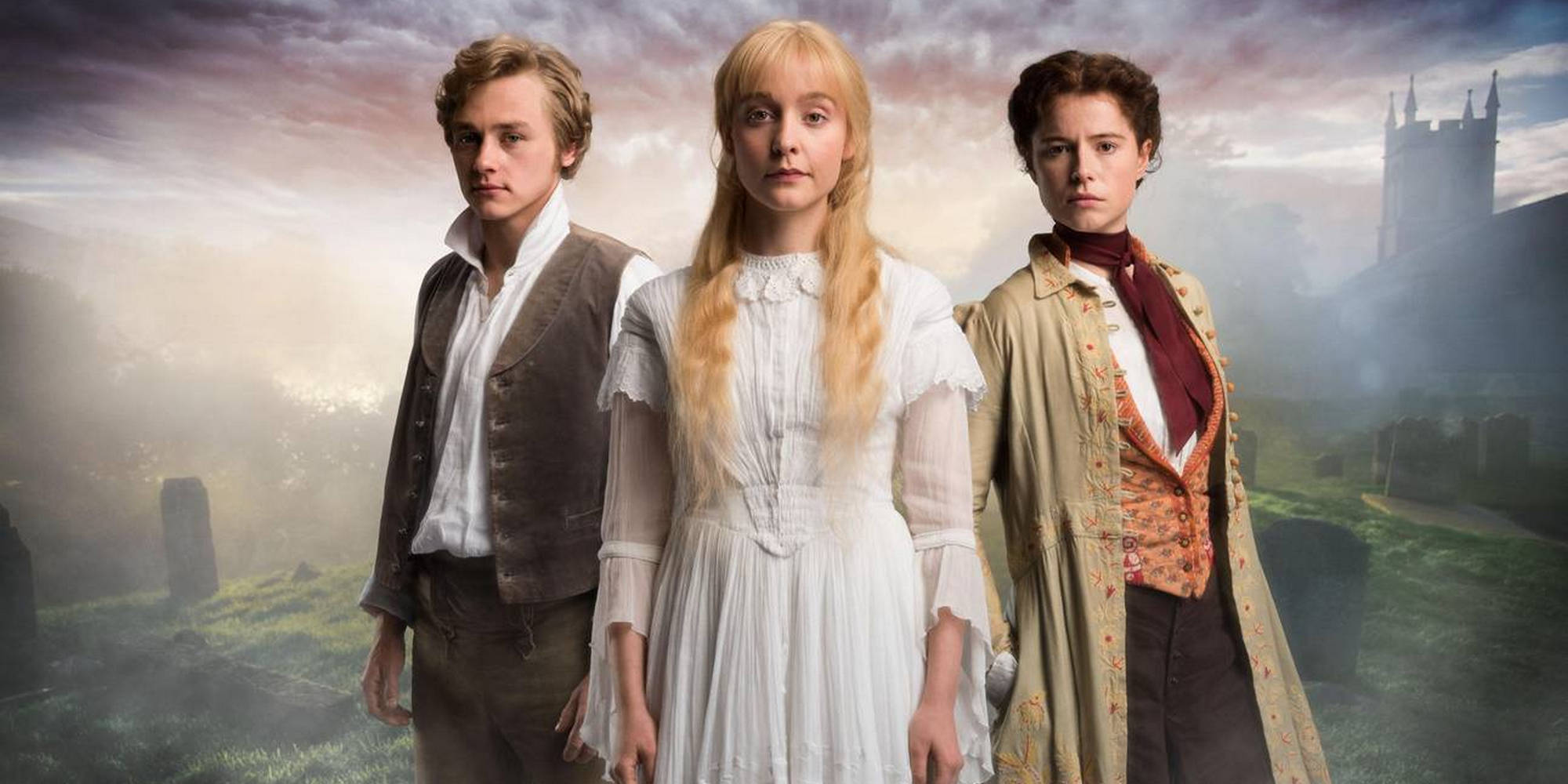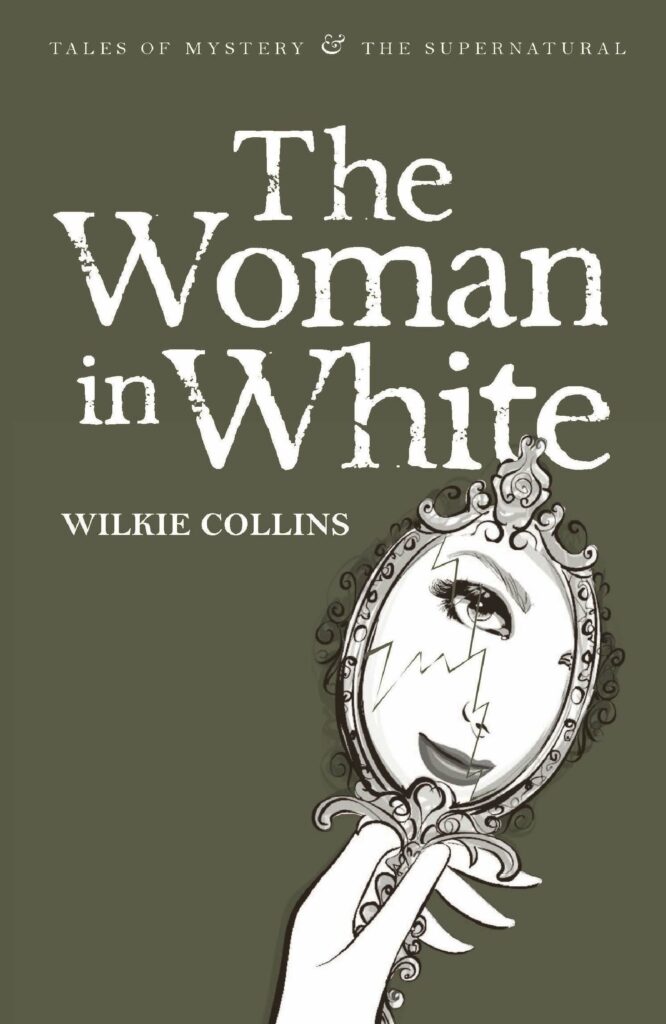
David Stuart Davies reviews BBC’s The Woman in White
David Stuart Davies reviews the BBC production that concluded last night.
‘This is the story of what a Woman’s patience can endure, and of what Man’s resolution can achieve.’
Wilkie Collins – The Woman in White.
Wilkie Collins’s dark and compelling tale The Woman in White, which is widely regarded as the first ‘mystery novel’, was a literary sensation at the time of its publication in 1860 and it remains an engrossing psychological thriller with an overpowering mood of threat and suspense. The original narrative and bold characterisation need a little tweaking to emphasise certain concerns of modern life. However screenwriter Fiona Seres cranks up such issues as mental and physical abuse and the power of men over women – think of the Weinstein scandal and the Me Too movement today. Marian Halcombe, the major heroine who refuses to let her gender define her, so brilliantly portrayed by Jessie Buckley, observes; ‘How is it that men crush women time and time again and go unpunished.’ In essence, she is referring to Sir Percival Glyde, her half-sister Laura Fairlie’s overbearing husband but the message is clear as she adds, ‘If men were held accountable they’d hang every hour of the day, every day of the year.’ Glyde’s villainy, while appearing modern, is reflecting centuries of entitlement and mid-nineteenth century law, when a was more or less her husband’s servant, her independence and finances handed over to him upon marriage. Dougray Scott’s Glyde is never even charming on the surface – he is selfish, vicious and brutal. His creepiness and forceful nature are truly frightening. It is a performance of great power. I certainly wouldn’t want to be in a room with this monster.
Any television adaptation of a novel, especially one as long and with multiple narrative perspectives as The Woman In White, requires some changes to make it effective as a drama. It is often necessary to take certain liberties with the plot and characters to make a dramatised version acceptable and accessible to a modern audience, while at the same time remaining true to the essence of the original. It is a difficult and finely tuned process but for this reviewer, Fiona Seres got it just right. The novel, initially serialised in episodes over twelve months, has been nipped and tucked in certain areas and extended in others to enrich the whole. After a rather languorous first episode, the tension was effectively cranked up and remained intense until the final moments. It was twenty years ago when the BBC last gave us a version of this tale in two hour-long episodes. It was well done and gripping but as a version of Collins’ novel, it was severely truncated. This new adaptation takes the time to deal with all the intricacies of the clever and convoluted plot.
Some of the ‘changes’ have been most interesting. The adaptation revealed that the overbearing and heartless Glyde was a tormented soul whose villainy caused him deep psychological anguish. This take on the character gave him more depth and a darker reality than the fellow in the novel. Dougray Scott grasped with both hands the opportunity to bring give us this version of Glyde and gave us a chilling portrait of a doomed yet cruel man, caught in a web of his own greed: a man desperately in debt and concealing a dark secret whose only apparent salvation is to marry a young heiress.
Count Fosco is one of the great villains of literature but in the novel and in so many dramatisations he appears almost as a comic opera baddie. Collins describes him as a charming Italian nobleman who is ‘immensely fat’, with a predilection for letting his pet mice run over his body. This might work effectively on the written page but it is maybe a little too risible for the modern viewer and so instead of the chubby mouse man we have what the Daily Telegraph reviewer described as a, ‘broodingly handsome Italian who resembles a tousle-haired member of One Direction or a young Ian McShane – which made his sexual chemistry with Marian all the more plausible.’ Riccardo Scamarcio as the Count is brilliantly, sibilantly sinister and, despite not pleasing all viewers, this slimmed-down version of Fosco is a much more threatening fellow than the one portrayed in other dramatisations.
All the performances were powerful and polished but Jessie Buckley and Olivia Vinall are particularly impressive as the vulnerable half-sisters. Vinall, cast as Laurie Fairlie and Anne Catherick, the Woman in White herself, is convincing in both roles, subtly demonstrating Laura’s mental decline, as a result of her incarceration in an asylum which is depicted graphically, emphasising her similarity to Catherick.
Sir Percival meets a fiery fate while attempting to destroy evidence of his illegitimacy and Fosco’s past betrayals catch up with him and he is bumped off by Walter’s old friend Pesca (Ivan Kaye) for betraying a nationalist brotherhood. The two climaxes, each brilliantly handled, with Art Malik’s wounded yet dignified scrivener Erasmus Nash on hand to ensure fair play where possible and clarity in the labyrinthine narrative. Nash was a Series invention but worked handsomely as a canny tool to negotiate the slabs of exposition while maintaining pace and tension.
With a rousing climax and a suitably happy ending, this interpretation by Fiona Seres has shown admirable fidelity to the original while teasing out contemporary themes. I am sure Wilkie Collins would have admired this fine production, which confirms the power and intensity of his novel.
Books associated with this article
